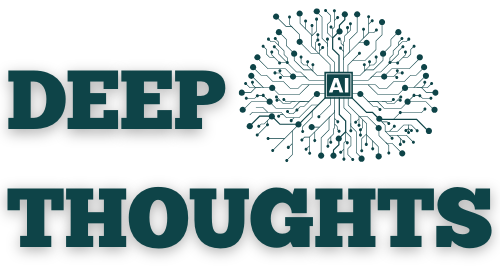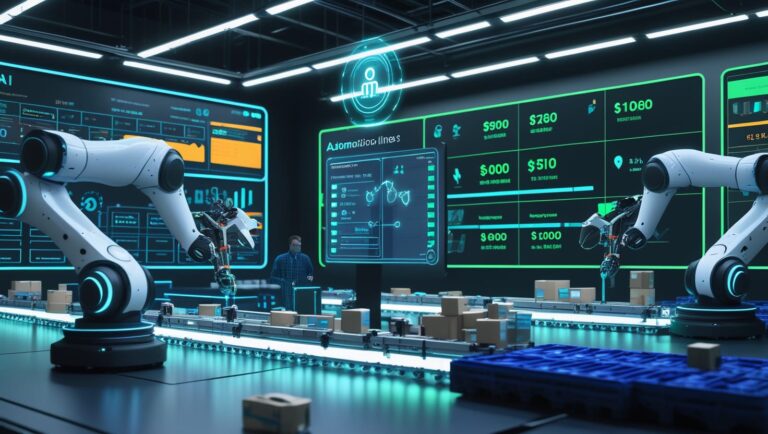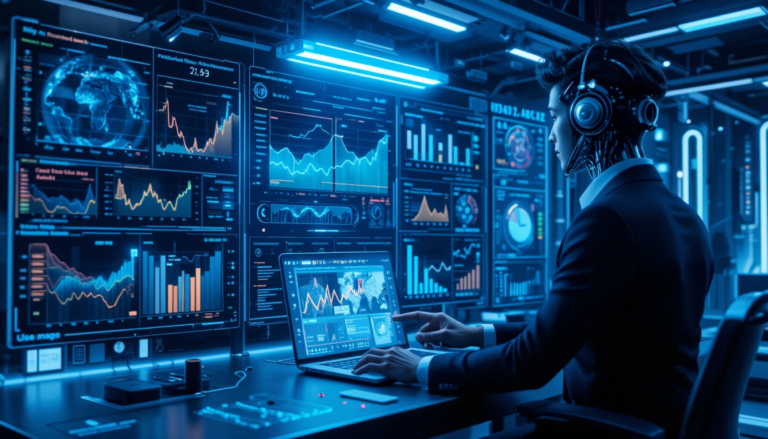Scaling with AI-Driven Marketing
In today’s fast-paced digital landscape, businesses need to scale their marketing efforts to stay competitive. However, traditional methods often struggle to keep up with the demands of personalization, real-time analytics, and omnichannel engagement. Enter Artificial Intelligence (AI)—a game-changing tool that enables businesses to scale their marketing strategies while maintaining efficiency and effectiveness. In this article, we’ll explore how AI-driven marketing can help businesses grow, along with real-world examples and practical strategies to implement it.
Why Scale Marketing with AI?
AI-driven marketing offers several advantages for businesses looking to scale:
- Personalization at scale: Deliver tailored messages to large audiences without sacrificing relevance.
- Real-time insights: Make data-driven decisions quickly to optimize campaigns.
- Automation: Streamline repetitive tasks, freeing up time for strategic planning.
- Cost efficiency: Maximize ROI by targeting the right audience with the right message at the right time.
How AI-Driven Marketing Helps Scale Your Business
1. Personalized Customer Experiences
AI analyzes customer data—such as browsing history, purchase behavior, and demographics—to deliver hyper-personalized marketing messages.
- Example: Amazon uses AI to recommend products based on individual user behavior, driving higher conversion rates.
- Actionable Tip: Use AI-powered tools like dynamic email marketing platforms to send personalized content to your audience.
2. Predictive Analytics for Smarter Campaigns
AI can predict customer behavior, such as likelihood to purchase or churn, enabling marketers to optimize campaigns proactively.
- Example: Netflix uses AI to predict which shows users will enjoy, increasing engagement and retention.
- Actionable Tip: Implement predictive analytics tools to identify high-value customers and tailor your marketing efforts accordingly.
3. Automated Ad Campaigns
AI automates the process of creating, managing, and optimizing ad campaigns across platforms like Google Ads, Facebook, and Instagram.
- Example: Coca-Cola uses AI to automate ad placements and optimize spend, achieving better ROI.
- Actionable Tip: Leverage AI-driven ad platforms like Google Smart Campaigns or Facebook Automated Ads to save time and improve performance.
4. Chatbots for Enhanced Engagement
AI-powered chatbots provide instant, 24/7 customer support, answering queries, guiding purchases, and nurturing leads.
- Example: Sephora’s chatbot offers personalized beauty advice, driving customer engagement and sales.
- Actionable Tip: Deploy chatbots on your website or social media to handle FAQs and improve customer satisfaction.
5. Content Creation and Optimization
AI tools can generate and optimize content, from blog posts to social media captions, ensuring it resonates with your target audience.
- Example: The Washington Post uses AI to write short news articles, freeing up journalists for more in-depth stories.
- Actionable Tip: Use AI content tools like ChatGPT or Jasper to create drafts, headlines, and SEO-optimized copy.
6. Real-Time Performance Monitoring
AI provides real-time insights into campaign performance, allowing marketers to make adjustments on the fly.
- Example: HubSpot’s AI analytics dashboard helps businesses track campaign metrics and optimize strategies in real time.
- Actionable Tip: Use AI-powered analytics platforms to monitor key metrics like click-through rates, conversions, and ROI.
Real-World Success Stories
- Spotify: Uses AI to create personalized playlists and recommend music, driving user engagement and retention.
- Starbucks: Leverages AI to send personalized offers and promotions, increasing customer loyalty and sales.
- Nike: Uses AI to analyze customer data and deliver targeted marketing campaigns, boosting brand affinity.
How to Get Started with AI-Driven Marketing
- Audit Your Current Marketing Efforts: Identify areas where AI can add value, such as personalization, automation, or analytics.
- Choose the Right Tools: Invest in AI-powered marketing platforms like HubSpot, Salesforce Einstein, or Google Marketing Platform.
- Start Small: Pilot AI-driven initiatives in specific areas, such as email marketing or ad campaigns, before scaling up.
- Train Your Team: Ensure your marketing team understands how to use AI tools effectively and integrate them into their workflows.
- Measure Success: Track key performance indicators (KPIs) like customer engagement, conversion rates, and ROI to evaluate the impact of AI-driven marketing.
Challenges to Consider
While AI-driven marketing offers immense potential, businesses should be aware of:
- Data Privacy: Ensure compliance with regulations like GDPR and CCPA when collecting and using customer data.
- Integration: Make sure AI tools integrate seamlessly with your existing marketing stack.
- Cost: While AI can deliver long-term savings, initial investments in technology and training may be required.
Conclusion
Scaling with AI-driven marketing is no longer a luxury—it’s a necessity for businesses looking to grow in the digital age. By leveraging AI for personalization, automation, predictive analytics, and real-time insights, businesses can maximize efficiency, improve customer experiences, and drive revenue growth. The key is to start small, focus on customer needs, and continuously refine your approach.
The future of marketing is AI-driven. Are you ready to scale smarter and faster?







